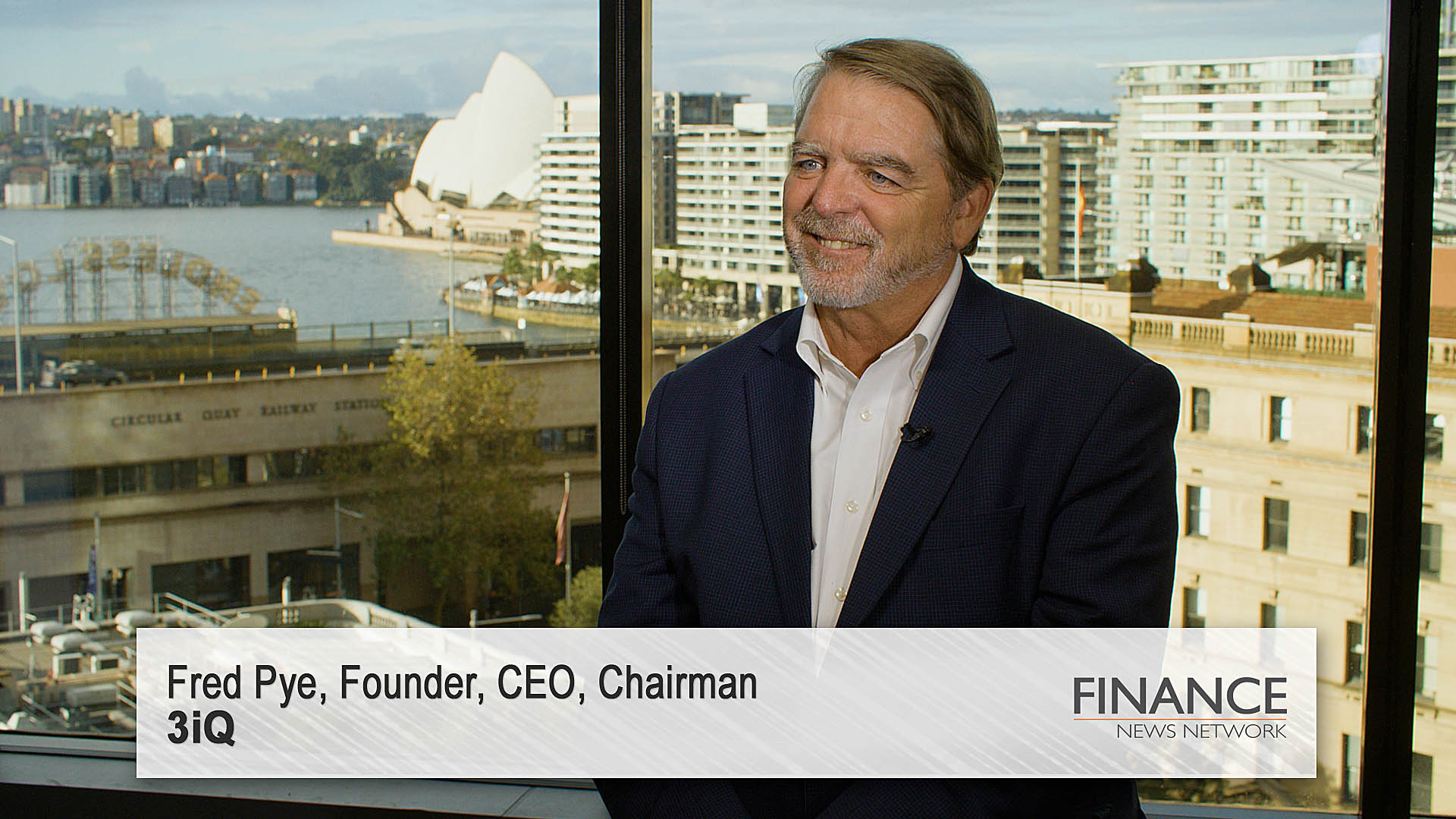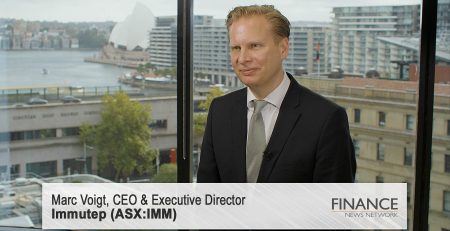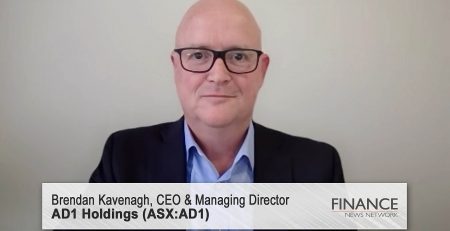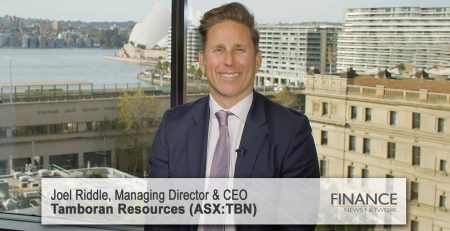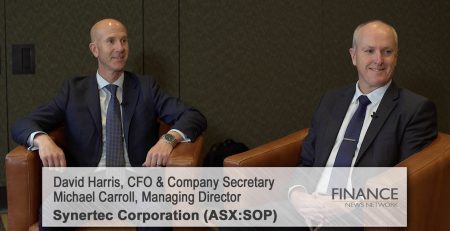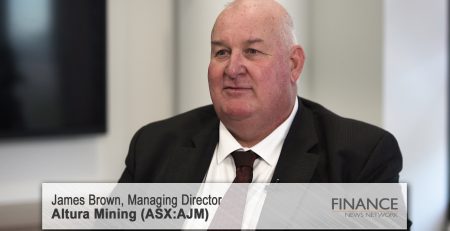Should an investor allocate to cryptocurrencies like Bitcoin and Ethereum?
Fred Pye, CEO and Chairman of digital asset manager 3iQ, discusses the future of cryptocurrencies and the launch of two crypto ETFs in Australia based on Ethereum and Bitcoin.
Tim McGowen: We're talking to Fred Pye, who is both the founder, CEO and chairman of 3IQ, which is one of the world's largest and oldest specialised digital asset managers in the world. They're also one of the first to list both an Ether and Bitcoin exchange traded fund in North America.
Now, Fred, cryptocurrencies, there seems to be kind of two schools of thought. You've got the Gen Z, who seem to trade cryptocurrencies like a game on their app. And then you've got the older generation, perhaps myself, that's a little bit more sceptical and probably don't understand crypto as well as I should. Can you explain to me how you can consider cryptocurrencies an asset class?
Fred Pye: Well, first of all, probably the largest invention of our lifetime so far was the internet, and the internet is nothing but a bunch of protocols. So, whether it was email, voice over internet protocol, whether it was live-streaming, whether it was the World Wide Web, whether it was text messaging, all of these protocols have fundamentally changed the way we did traditional business.
Well, in 2008, the secure value transfer protocol was created, so it was a protocol that allowed you to now transfer ownership value title, or money, across the internet instantaneously and virtually for free. That secure protocol is also known as the Bitcoin blockchain.
Tim McGowen: Now, you're obviously Canadian. You're very well known in the industry, and welcome to Australia. You're launching two cryptocurrencies here, one in Bitcoin and one in Ether. Can you tell us why you focused on those cryptos?
Fred Pye: Well, first of all, Bitcoin is obviously the granddaddy, like I am, of digital assets. And Bitcoin has a unique characteristic that it's got virtually a fixed supply for the next 140 years, and the demand skyrockets. So, we believe when you have fixed supply and skyrocketing demand, it's always good for the price. So, we look at Bitcoin as changed away from a cryptocurrency and more a store of wealth. You can now compare it to gold as a store of wealth. On the other side, Ethereum is the blockchain of everything else. It's the original blockchain of everything else, meaning you can program different projects on the Ethereum blockchain. Stablecoins would be a perfect example of one of those.
Tim McGowen: So, you've spoken about this previously. In some of the interviews I've heard, you talk about money going digital, if you like. So, how does this work from a practical sense?
Fred Pye: Well, that's exactly it, is money is going digital. So, the way we used to talk about it was, when we launched the first digital Canadian dollar about four years ago, we were called by all the regulators to say, "Why shouldn't we stop this?" And we said, "Well, remember when we were hippies in the seventies and eighties backpacking around Europe. What did we use as currency?" Well, we used American Express travellers cheques. And an American Express travellers cheque was a paper representation of a deposit at an Australian chartered bank or a Canadian chartered bank. And you'd just go to Greece and you'd have to make sure that… your cyber security was your signature, and it had to match the signature when you bought them. So, digital currencies today are exactly that. They are digital representations of deposit at Canadian or Australian chartered banks. So, you should be able… In the future, you'll be able to go to the bank, deposit $10,000, ask for them to convert that to digital. That digital currency is created on a blockchain, whether it's Algorand or Ethereum or Polkadot. That digital currency is created. It goes back to the bank and then ends up in your phone. And now you can use that currency anywhere in the world and you can convert it to any other currency instantaneously, virtually for free.
Tim McGowen: Does the technical protocol that you're talking about, is that actually what creates the value of the crypto?
Fred Pye: Absolutely. So, in the internet, which was free, the protocol, everybody who made money was Uber, Netflix, Amazon, everyone who used a free protocol to create these trillion-dollar businesses. The blockchain is the opposite. To put an application on a blockchain, you can code an application of a smart contract in a weekend. You know, your 24-year-old can do it in a weekend. However, to put that on a secure internet, you have to pay to put that contract on the secure internet and you have to use the native currency of that blockchain. So, Algorand would be Algo. Ethereum would be Ether. Bitcoin would be obviously Bitcoin with a big B versus a little B. So, you have to use one of these major layer-one protocols to create your currency.
Tim McGowen: So, Fred, how does an investor value a cryptocurrency? We know stocks and currencies move on fundamentals, and there's the assumption that something like Bitcoin has a limited supply. But I suppose, from a valuation perspective, is the assumption that, because there's limited supply, it will be used widespread for global transactions online? So, is that part of the assumption in terms of valuing a cryptocurrency like Bitcoin, for example?
Fred Pye: Well, people are valuing Bitcoin right now based on its scarcity. So, Bitcoin grows at 2 per cent per year. Gold grows at 4 per cent per year. So, Bitcoin's twice as scarce of gold. The next generation in any kind of financial crisis or anything will be looking at Bitcoin as their saviour. They won't be necessarily looking at gold. We're not in the camp of Bitcoin versus gold. You should own both Bitcoin and you should own gold, because the conditions that we're looking at with inflation and economic growth, we have to be very concerned about that.
The other cryptocurrencies, we are the ones that are in the position to analyse them and say, which ones have the biggest growth use cases in the world right now? Right now we see eight out of the top 30 that we like a lot, that the demand for those digital assets are significant, and we want to invest in the ones that are growing for the next generation.
Tim McGowen: Fred, so, should investors consider crypto as a tech investment, as a liquid tech investment, rather than a currency?
Fred Pye: Absolutely. Digital assets, again, are probably the most significant technology development of our lifetime. Money going digital based on that protocol is easily one of the most important technology investments of our lifetime. Our motto is #GetOffZero. You have to start with Bitcoin and Ether. You have to look at the multiple currencies. Because what's happening next is Web 2.0, Web 3.0, when people talk about the metaverse, for example. The metaverse will displace the World Wide Web. It will displace the information superhighway that we were trying to analyse in 1995 or 1991. And every company in the world today has a website. Twenty years from now, every company in the world will have a property on the metaverse, because 20 years from now, you're not going to develop a website on 50-year-old technology. You're going to use technology that's being built today. So, you have a choice to invest in 20 years from now, or you invest in Web 3.0 today.
Tim McGowen: So, your digital asset business 3IQ, which is Canadian-based, is about to release two ETFs in Australia, one on Bitcoin and one on Ether. What's the advantage of investing in those cryptocurrencies via an ETF structure?
Fred Pye: Well, we think those are the two most liquid, the two largest. And that's the perfect way to dip your toe in. As I said, a 1 or 2 per cent position, depending on your financial risk levels and everything, is a perfectly normal discussion you're going to have with your investment advisor. After that, they've got to look at what is happening in the rest of the world, what blockchains are becoming more prolific, which are cheaper, which have more more social stability, which are ESG compliant, all of these kind of things, which is where the future of this is going to go.
Tim McGowen: Fred PYE, thanks for your time.
Fred Pye: My pleasure. It's been great speaking with you.
Ends
Copyright 2022 – Finance News Network
Source: Finance News Network

